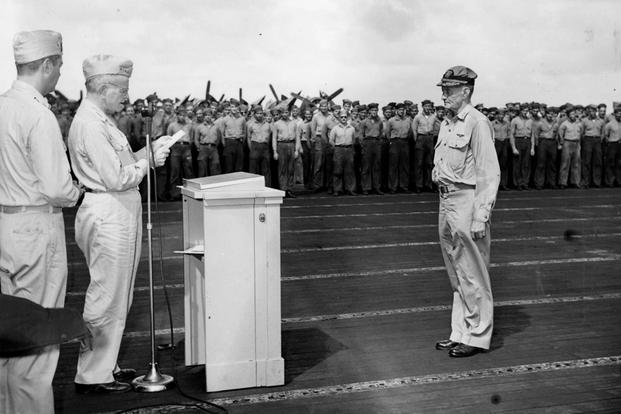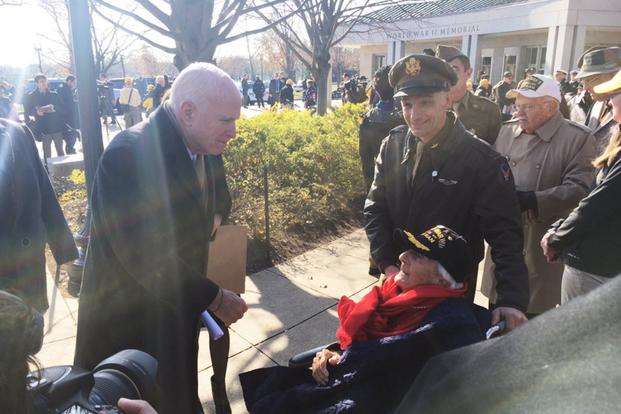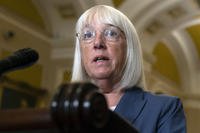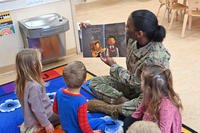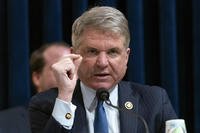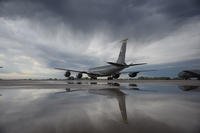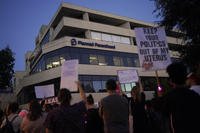Across the nation on Sunday, Dec. 7, 1941, the "sleeping giant" feared by Japan began to stir -- at football games, in Vince Scully's kitchen, and in the front yard of 5-year-old John McCain's home.
Word of the attack on Pearl Harbor was slow to spread, and there was a measure of reluctance to tell of the decimation of the Pacific Fleet.
More than 55,000 fans were at the old Polo Grounds in upper Manhattan, where the New York Giants were playing their final home game against the Brooklyn Dodgers, the now-defunct football team. It was "Tuffy Leemans Day," in honor of the Giants' single-wing tailback. Postmaster General James J. Farley was presiding.
Before halftime, the public address announcer blared: "Attention please. Here is an urgent message: Will Col. William J. Donovan call Operator 19 in Washington immediately?"
Donovan, a hero of World War I with New York's "Fighting 69th" Division, would become head of the Office of Strategic Services, the predecessor to the CIA. "Wild Bill" Donovan was off to war again.
Those listening to the game on the radio found out about the attack about midway through the first quarter when WOR radio broke in with a bulletin: "We interrupt this broadcast to bring you this important bulletin from the United Press. Flash, Washington -- the White House announces Japanese attack on Pearl Harbor. Stay tuned to WOR for further developments which will be broadcast as received."
In Chicago's Comiskey Park, the Chicago Bears were playing the Chicago Cardinals. During the course of the game, the announcer didn't say why, but asked all service members in the stands to leave immediately and report to their units. Newspaper reporters were told to check with their offices.
At Griffith Stadium in Washington, D.C., where the Washington Redskins were playing the Philadelphia Eagles, the announcer paged military personnel and government officials throughout the game, but made no mention of the Pearl Harbor attack.
When asked why later, Redskins owner George Preston Marshall, a stickler for the rules when they suited him, said, "It is against the policy of Redskins management to broadcast non-sports news over the stadium's public address system."
Fourteen-year-old Vince Scully heard one of those radio bulletins on Dec. 7, 1941, as he listened to the New York Giants football game and rooted for Tuffy Leemans to do well.
Scully, the Hall of Fame announcer for the Brooklyn and later Los Angeles Dodgers, recalled the moment years later while broadcasting a game where a Pearl Harbor veteran was the guest of honor.
"It was the only time I ever heard my father swear," Scully said. He said he heard that Pearl Harbor had been attacked but didn't know where it was. He went to the kitchen to ask his father. "He let out an expletive that was shocking," Scully said, "and then he simply said, 'That's war.'"
Five-year-old John McCain was playing in the front yard of his Navy family's home at the time in New London, Connecticut. "It's one of my earliest memories," Sen John McCain said Wednesday in an address at the World War II Memorial in Washington, D.C.
"A black sedan pulled up in front of the house, a Navy officer in uniform rolled down the window and shouted at my father that the Japanese had bombed Pearl Harbor," McCain said. "My father left immediately for the submarine base where he was stationed, and I rarely saw him again for the next four years."
McCain's father, who would become Adm. John S. McCain Jr., held submarine commands in the Atlantic and the Pacific in World War II. McCain's grandfather, Adm. John S. "Slew" McCain, a pioneer in carrier operations, was on the deck of the battleship USS Missouri when the Japanese surrendered in Tokyo Bay.
In his address Wednesday, McCain said, "Many battles followed and many challenges were offered and met" after Pearl Harbor. "With our allies, we defeated our enemies in the Pacific and Europe. We defeated our Cold War adversary.
"And we will prevail over the challenges we face today," he added. "But it began with the courage and faith of those Americans who answered their summons to duty at Pearl Harbor, who gave all that duty asked of them."
-- Richard Sisk can be reached at Richard.Sisk@Military.com.
